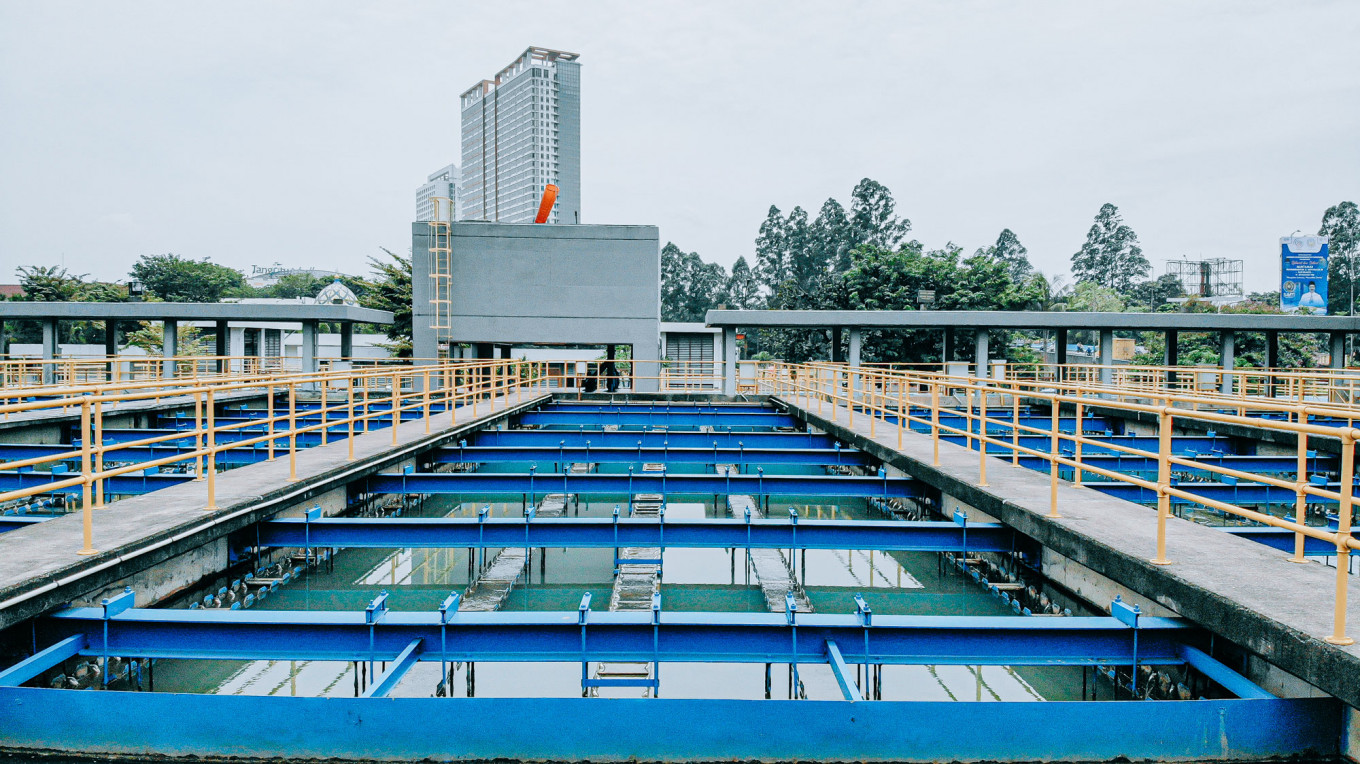Popular Reads
Top Results
Can't find what you're looking for?
View all search resultsPopular Reads
Top Results
Can't find what you're looking for?
View all search resultsA Comprehensive Approach to Achieving 100 % Clean Piped Water Acceess
Indonesia, characterized by its rich tapestry of landscapes and cultures, finds itself at a crossroads in confronting a pressing challenge, a lack of access to clean piped water.
Change text size
Gift Premium Articles
to Anyone
I
ndonesia, characterized by its rich tapestry of landscapes and cultures, finds itself at a crossroads in confronting a pressing challenge, a lack of access to clean piped water. While neighboring nations such as Singapore, Hong Kong and New Zealand proudly claim 100 percent accessibility, Indonesia grapples with a substantial portion of its populace still unable to access this fundamental resource.
Clean piped water is not merely a convenience; it stands as a cornerstone for advancing public health and elevating overall quality of life. Beyond its intrinsic value, clean piped water plays a pivotal role in propelling economic growth. Both households and businesses increasingly rely on substantial quantities of this essential resource, rendering it indispensable for sustainable development.
The economic benefits of clean piped water become glaringly apparent when juxtaposed with alternative sources. Groundwater, for instance, in addition to potential health risks, incurs exorbitant costs due to the electricity required for extraction. Similarly, bottled water, laden with expenses related to packaging and transportation, emerges as a pricier alternative. Establishing a robust clean piped water network not only guarantees accessibility but also contributes to a reduction in the cost of living, especially benefiting the most economically vulnerable segments of society, who are also the most likely to lack clean piped water access.
While Indonesia boasts a network of local government water companies, known as PDAMs, numbering around 450 nationwide, a significant hurdle remains. The majority of these entities operate with aged infrastructure and lack the investment capital required for crucial upgrades and expansion necessary to cater to the burgeoning population.
Private companies emerge as instrumental players in overcoming this challenge through active participation in public-private partnerships. These collaborations can infuse the substantial capital needed for investments, bringing with them engineering expertise and invaluable experience in operating and developing water treatment capacity.
Initiating this transformative process requires a meticulous approach. Thorough research, into existing piping structure, overall network water leakages, water treatment plant conditions and capacity, raw water sources and availability, serves as the foundational step. This research subsequently informs the design phase, where appropriate technologies are carefully selected to meet the unique needs of each region. The efficient management of budgets becomes paramount in ensuring the timely execution of projects, guaranteeing that clean piped water swiftly reaches communities in need. The capital region of Jakarta is a good example of this effort, having recently launched one of the largest initiatives in Asia to provide universal water access.
In conclusion, achieving universal access to clean piped water in Indonesia demands a concerted, collaborative effort. The modernization of existing infrastructure, the embrace of public-private partnerships, and the prioritization of community needs pave the way for a transformative journey. Let us collectively envision an Indonesia where every citizen has unfettered access to clean piped water, setting the stage for improved health, enhanced quality of life and sustainable economic growth. This collective vision is not just an aspiration but a call to action for local communities, governments, media, NGOs and private companies to unite in making it a reality.










